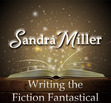Can writers be editors?

Or perhaps more importantly, can writers self-edit?
If you hang around in places where self-published authors talk, you know the hard-and-fast wisdom handed around right now is that a self-publishing writer MUST hire an editor. You are strongly advised to hire a cover designer, and sometimes even an interior formatting designer, but the one thing everyone is in agreement on is the absolute necessity of an editor. It is unquestionable–a writer cannot edit their own work.
I'm going to step out on a limb here and voice an unpopular opinion. I think that writers can be their own editors. Or at least, writers can learn to be their own editors.
I think the heart of the problem here is that so many writers never really learn about story mechanics. Writing classes, from secondary school to college and on, all seem to focus on either the very low level–parts of speech, sentence construction–or the low level–this is foreshadowing, this is allegory. Most classes do not teach, or even attempt to teach, basic story mechanics. Concepts like setting stakes and escalating them, building tension, pace, how multiple story threads are worked together so that the reader doesn't lose sight of any of them…these things are usually not discussed in writing classes. Or maybe I just took the wrong classes!
Editing requires a different view of your work. You have to stop looking at your story as this precious thing you created, take a step back, and really examine what is there on the page, not what was in your head as you wrote it. Does the story on the page work? If not, how can it be fixed?
These are questions most writers are ill-equipped to answer. But that does not mean they can't learn. Personally, I think an excellent place to start is Holly Lisle's How to Revise Your Novel course. She teaches various methods of taking that step back and evaluating the bones of your story, which is what developmental editing is all about. If you've done the course, you'll remember the index cards–to me, that is a great example of getting away from the story in your head to the story on your page, and showing you in simple terms what is not working.
I've heard the argument tossed around that writers can't edit their own work because they are too close to it. I don't know. I wonder, doesn't that make the writer the *most* qualified person to edit that work, assuming they can achieve that necessary distance? Nobody knows better than the writer what they were trying to do with a given piece.
I'm not talking so much about line editing and things like grammar checking, spelling, etc. Those things are pretty objective. But developmental editing is very subjective–no two editors are going to suggest the same changes to a manuscript. An editor needs a firm understanding of what makes a story work, and how to fix it when it is broken.
These skills are not black voodoo magic. They are not handed down from on high to a chosen few. They are learned skills.
Most writers aren't going to have these skills out of the box, as they say. But I do believe that most writers can learn them. What do you think?











